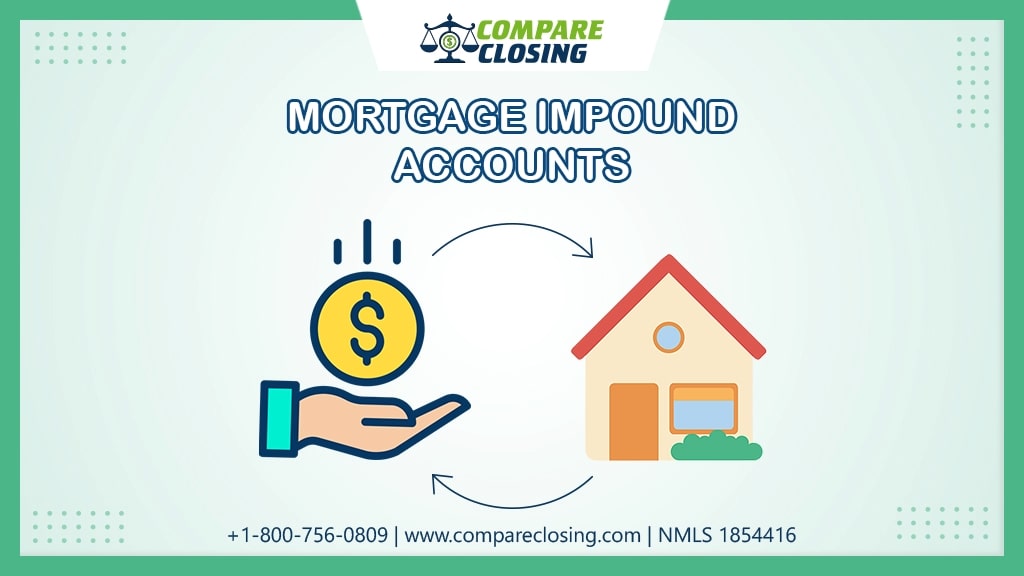Table of Contents
- What Are Netting Escrows & How Does It Work?: The Best Guide - January 2, 2024
- The Secret About Prescriptive Easement: Top Guide 1 Must Know - December 4, 2023
- About Home Equity Loans In Texas And How Can One Obtain It - November 27, 2023
About Mortgage Impound Accounts
When you are planning to buy a home, you may come across many mortgage terms that could sometimes be stressful.
This could lead to confusion and may have you reconsider your decision to buy a new property.
Once a such term is mortgage impound accounts. In this post, we will understand what is an impound account in a mortgage and how it works.
What Is A Mortgage Impound Account?
Also known as an escrow impound account, a mortgage impound account is a financial account set up by a bank or a lender to collect the cost of property taxes, homeowner’s insurance, and mortgage insurance (if the down payment is less than 20%).
Borrowers make monthly payments in this account equal to 1/12 of their total annual property tax and homeowner’s insurance costs.
The lender will then use the funds collected in your impound mortgage account to pay the property taxes and homeowner’s insurance for you as and when they are due.
For example, if your property taxes and homeowner’s insurance are $4,000 annually, you’ll need to add about $333 to your mortgage payments (principal and interest).
As the tax rates change every year, your monthly impound payment is going to change based on this tax rate.
An impound mortgage account is particularly similar to a savings account but is committed to taxes and insurance.
Instead of paying a large lump sum every year or every six months, these fees are set up to be rolled into your mortgage payments, so you never have to worry about paying your home insurance and property taxes.
How Does Impound Accounts Work?
Your bank or lender will set up an escrow account for you at closing. You must put down an initial deposit, which consists of part of your insurance and property tax costs.
Based on which month you are closing on your property purchase transaction, your initial deposit for the property taxes and the home owner’s insurance is determined.
After the initial deposit payment, you must make these payments each month along with your monthly mortgage payment.
Once they receive the money, your lender will hold the funds in your escrow impound account until they are received by your local council or insurance provider.
It’s important to remember that according to HUD (US Department of Housing and Urban Development) guidelines, your lender is allowed to withhold payments for up to two months and is not required to ask you for additional payments or a “cushion” above that limit.
What Are The Benefits Of Mortgage Impound Accounts?
The biggest benefit of this type of account is the forced savings that will ensure your home insurance and property taxes are paid on time.
If you keep your savings to yourself and aren’t careful with your budget, you could end up with a huge bill that you won’t be able to pay, ending in losing your home.
What Are The Disadvantages Of Mortgage Impound Accounts?
The biggest disadvantage to having an impound mortgage account is that you can’t earn interest on the money in the account if you reside in a state where mortgage servicers don’t have to pay you interest.
Another con is that your monthly mortgage payment will change when property taxes and insurance premiums change, but that change in your budget will still happen without having an impound mortgage account.
If your lender is not being careful about paying the bills on time, you might be left with a huge amount to pay for these housing costs.
Conclusion
In many states, the lenders don’t need to have mortgage impound accounts for you to get a mortgage to buy a home.
If you are planning to pay your taxes and insurance make sure that you budget them accordingly.
However, if you are living in a state that requires this mortgage impound, you may need to ensure that you understand its works and keep a close watch to avoid any shortfall.
Amanda Byford
Amanda Byford has bought and sold many houses in the past fifteen years and is actively managing an income property portfolio consisting of multi-family properties. During the buying and selling of these properties, she has gone through several different mortgage loan transactions. This experience and knowledge have helped her develop an avenue to guide consumers to their best available option by comparing lenders through the Compare Closing business.





